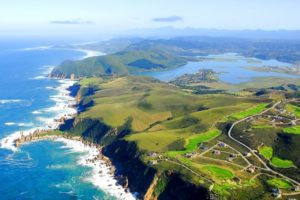
Africa is the world’s second largest and second most-populous continent (the first being Asia in both categories). At about 30.3 million km2 (11.7 million square miles) including adjacent islands, it covers 6% of Earth’s total surface area and 20% of its total land area. With 1.2 billion people as of 2016, it accounts for about 16% of the world’s human population. The continent is surrounded by the Mediterranean Sea to the north, both the Suez Canal and the Red Sea along the Sinai Peninsula to the northeast, the Indian Ocean to the southeast and the Atlantic Ocean to the west. The continent includes Madagascar and various archipelagos.
Africa is an amazing continent to visit, the cradle of Humankind
It contains 54 fully recognised sovereign states (countries), nine territories and two de facto independent states with limited or no recognition. The majority of the continent and its countries are in the Northern Hemisphere, with a substantial portion and number of countries in the Southern Hemisphere.
Africa’s average population is the youngest amongst all the continents; the median age in 2012 was 19.7, when the worldwide median age was 30.4. Algeria is Africa’s largest country by area, and Nigeria is its largest by population. Africa, particularly central Eastern Africa, is widely accepted as the place of origin of humans and the Hominidae clade (great apes), as evidenced by the discovery of the earliest hominids and their ancestors, as well as later ones that have been dated to around seven million years ago, including Sahelanthropus tchadensis, Australopithecus africanus, A. afarensis, Homo erectus, H. habilis and H. ergaster—with the earliest Homo sapiens (modern human) found in Ethiopia being dated to circa 200,000 years ago. Africa straddles the equator and encompasses numerous climate areas; it is the only continent to stretch from the northern temperate to southern temperate zones.
Africa hosts a large diversity of ethnicities, cultures and languages. In the late 19th century European countries colonised almost all of Africa; most present states in Africa originated from a process of decolonisation in the 20th century. African nations cooperate through the establishment of the African Union, which is headquartered in Addis Ababa.
Climate
The climate of Africa ranges from tropical to subarctic on its highest peaks. Its northern half is primarily desert, or arid, while its central and southern areas contain both savanna plains and dense jungle (rainforest) regions. In between, there is a convergence, where vegetation patterns such as sahel and steppe dominate. Africa is the hottest continent on earth and 60% of the entire land surface consists of drylands and deserts.
Fauna
Africa boasts perhaps the world’s largest combination of density and “range of freedom” of wild animal populations and diversity, with wild populations of large carnivores (such as lions, hyenas, and cheetahs) and herbivores (such as buffalo, elephants, camels, and giraffes) ranging freely on primarily open non-private plains. It is also home to a variety of “jungle” animals including snakes and primates and aquatic life such as crocodiles and amphibians. In addition, Africa has the largest number of megafauna species, as it was least affected by the extinction of the Pleistocene megafauna.
Culture
Some aspects of traditional African cultures have become less practised in recent years as a result of neglect and suppression by colonial and post-colonial regimes. For example, African customs were discouraged, and African languages were prohibited in mission schools. Leopold II of Belgium attempted to “civilise” Africans by discouraging polygamy and witchcraft.
Obidoh Freeborn posits that colonialism is one element that has created the character of modern African art. According to authors Douglas Fraser and Herbert M. Cole, “The precipitous alterations in the power structure wrought by colonialism were quickly followed by drastic iconographic changes in the art.” Fraser and Cole assert that, in Igboland, some art objects “lack the vigor and careful craftsmanship of the earlier art objects that served traditional functions.
Religion
Africans profess a wide variety of religious beliefs, and statistics on religious affiliation are difficult to come by since they are often a sensitive a topic for governments with mixed religious populations. According to the World Book Encyclopedia, Islam is the largest religion in Africa, followed by Christianity. According to Encyclopædia Britannica, 45% of the population are Christians, 40% are Muslims, and 10% follow traditional religions. A small number of Africans are Hindu, Buddhist, Confucianist, Baha’i, or Jewish. There is also a minority of people in Africa who are irreligious.
Sports
Fifty-four African countries have football (soccer) teams in the Confederation of African Football. Egypt has won the African Cup seven times, and a record-making three times in a row. Cameroon, Nigeria, Senegal, Ghana, and Algeria have advanced to the knockout stage of recent FIFA World Cups. South Africa hosted the 2010 World Cup tournament, becoming the first African country to do so.
Cricket is popular in some African nations. South Africa and Zimbabwe have Test status, while Kenya is the leading non-test team and previously had One-Day International cricket (ODI) status (from 10 October 1997, until 30 January 2014). The three countries jointly hosted the 2003 Cricket World Cup. Namibia is the other African country to have played in a World Cup. Morocco in northern Africa has also hosted the 2002 Morocco Cup, but the national team has never qualified for a major tournament. Rugby is a popular sport in South Africa, Namibia and Zimbabwe.

Recent Comments